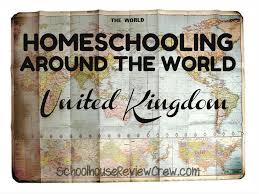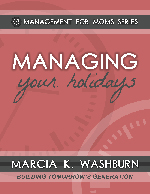I picked up a review of an article written by Daniel Monk, for the Child and Family Law Quarterly (2009), entitled “Regulating Home Education: Negotiating Standards, Anomalies, and Rights.”
The current legal status of homeschooling in England has not changed since 1944, a child’s fundamental right to education may be acquired either by regular attendance at a school or otherwise. Parents who wish to educate their children at home must provide a fulltime education that is, “efficient” and “suitable” for the child.
It is not the State’s responsibility to educate the child as it is in America where there are compulsory education laws. In Britain the responsibility to educate the child lies with the parents.
This lines up with International Law and the United Nations Convention on the Rights of the Child which recognizes a,
“Right to education but not a right to attend school,”
thus allowing for homeschooling.
Similarly the European Convention for Human Rights explains that,
“No person shall be denied the right to education,” thus establishing education as a fundamental right of children.
In America, particularly in Texas from whence I now hail, parents have a right to educate their children, in Europe the children have a right to education. If the European country deems the child is not getting an education by being homeschooled then the law steps in for the child’s rights.
According to Monk, the legal situation in Britain has hidden “collectivist concerns” which are buried amidst the parental and child rights. Monk understands America’s HSLDA’s fear of government taking over family rights but his fear is that homeschooling, especially in Britain, is being used by some to opt out of engagement with the broader society and may contribute to the fracturing of liberal society along class and racial lines.
I laughed when I read this because there is a stereotype that stalks homeschoolers and my show is designed to dismantle it. True, there are some who want to set themselves apart from society, you’ve met the non social security number brigade, the anti vaccination groups, and others, but, and let me remind you of this, these folks are spattered across every walk of life, not just the homechooling walk. Look at the sixties, we were all hippies and drop-outs and anti establishment…we weren’t all homeschoolers! I suppose homeschoolers are easier to tag!
In Britain homeschooling is not a fundamental right but an admissible form of education. In order for the government, or Local Authority,to know whether or not parents are living up to their side of the bargain and offering an “efficient” and “suitable” education to their children powers that be are considering regulation. Monk offers us three topics to consider:
Registration, Surveillance and Criteria.
Registration is not new, but it is a mess in progress. There is no uniformity across the Local Authorities: some require registration, some do not. Because Local Authorities come under the jurisdiction of the government whose job it is to ensure the child is getting a suitable education, every homeschool needs to be registered, only they’re not!
Surveillance, a scary word for Americans, it smacks of big brother watching you! In theory Local Authorities and parents should work co-operatively to ensure the child is receiving ‘efficient’ and ‘suitable’ education. But what if this co-operation breaks down? British homeschooling advocates argue that parents have the right to refuse entrance to Local Authorities on the basis of privacy rights enshrined in Article 8 of the European Convention for the Protection of Human Rights and Fundamental Freedoms. Monk does not think the courts will uphold this right but he notes that as of now,
“it is the matter of discretion for individual Local Authorities to decide how to respond to a refusal to allow access.”
We’re talking about easy access to the home where education is taking place. If the government suspects that a parent is not teaching efficiently or suitably it can knock on her door, and if she is in the midst of a challenging day, which happens when there are 6 under six, and she would rather it didn’t come in and see her wreck of a house without the Dutch courage of lipstick, it can enter without her permission! Ooops, not a very promising way to get co-operation.
Criteria, which is all about objectivity when it comes down to it. What constitutes an “efficient” and “suitable” education? Monk notes that increasingly parents are turning to homeschooling out of frustration with the local school systems. Since there is no clear cut definition of what “efficient” and “suitable” education entails there is much room for individuality thus making it very difficult for individual Local Authorities to claim superior knowledge about what a child should be learning or doing at home. The Department for Children, Schools and Families makes it clear that,
“home-educating parents are not required to: teach the national curriculum; provide a broad and balanced education; (or) have a timetable.”
The department’s guidelines do require that,
parents are consistently involved,
that children are provided with stimulating learning opportunities and
that children have access to resources like books, paper and pen, physical activity and social interactions.
Monk points out that unschooling, an up and coming movement in America, would not pass muster in Britain because there must be some sort of,
“systematic approach to the learning of basic skills of reading, writing and numeracy.”
There is some good news that has come about in Britain in regards to the Badman report and its support for closely monitoring homeschoolers. On April 7th, 2010 the British Government’s Department for Children, Schools and Families, tabled a proposed regulation on a bill that would allow almost unfettered discretion to Public Authorities to terminate homeschool programs giving them almost unrestricted access to the homes of British homeschoolers.
Norman Wells of the Family Education Trust congratulated all who were involved in the fight, he said,
“Home educators came together in great numbers and made their voices heard to an extent that even some members of the government’s own party were against the sweeping nature of the proposed restrictions. This is a victory for home educators in Britian.”
Wells cautions however,
“irrespective of which party wins the general election, the new administration will be placed under considerable pressure by bureaucrats from both local and national government to interfere with home educating families under the guise of safeguarding children’s welfare and promoting their educational rights.”
Wells notes that Americans [have] a bit more of a healthy skepticism of government than his own countrymen, a mind set he wished would be more common in Britain.
Britain’s history of state involvement in running social services, health and education is reflective in its peoples’ tendency to be law abiding and supportive of the society’s conventions.
Wells says,
“It would need a complete upheaval of all the branches of academia, social sciences, politics, law and education,”
in short, a turning of the British world upside down, to engender a healthy questioning of the government by my umbrella toting countrymen.
In answer to my sister-in-law’s question,
““When you move back to England you’ll send them to normal school won’t you?”
No I would not!
I enjoy imparting our own family codes of ethics and morals and living out God’s will for me on earth in this very ordinary fashion which constitutes my day to day life in His Word.
I feel blessed to be able to homeschool and I pray for the liberties I enjoy to be extended and upheld in the rest of the world including my homeland.
But she still didn’t want to hear any of that from me!









 Hello I'm Vivienne McNeny, English to the core and I've just put the kettle on so while its boiling let me tell you a little about myself. I was raised in a convent boarding school while my parents diplomatically hosted cocktail parties at foreign Embassies.
Hello I'm Vivienne McNeny, English to the core and I've just put the kettle on so while its boiling let me tell you a little about myself. I was raised in a convent boarding school while my parents diplomatically hosted cocktail parties at foreign Embassies. 







No comments so far!
Leave a Comment